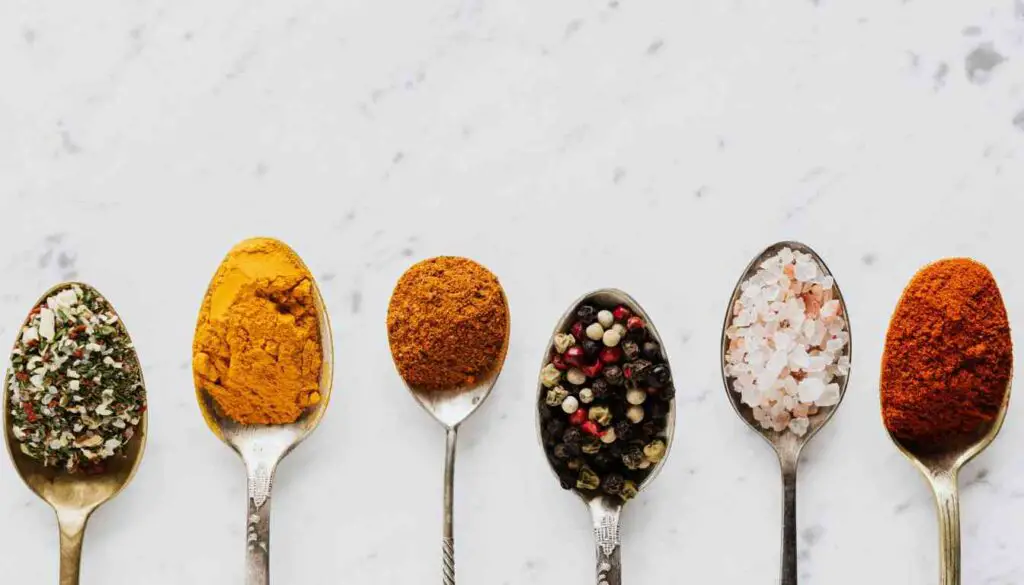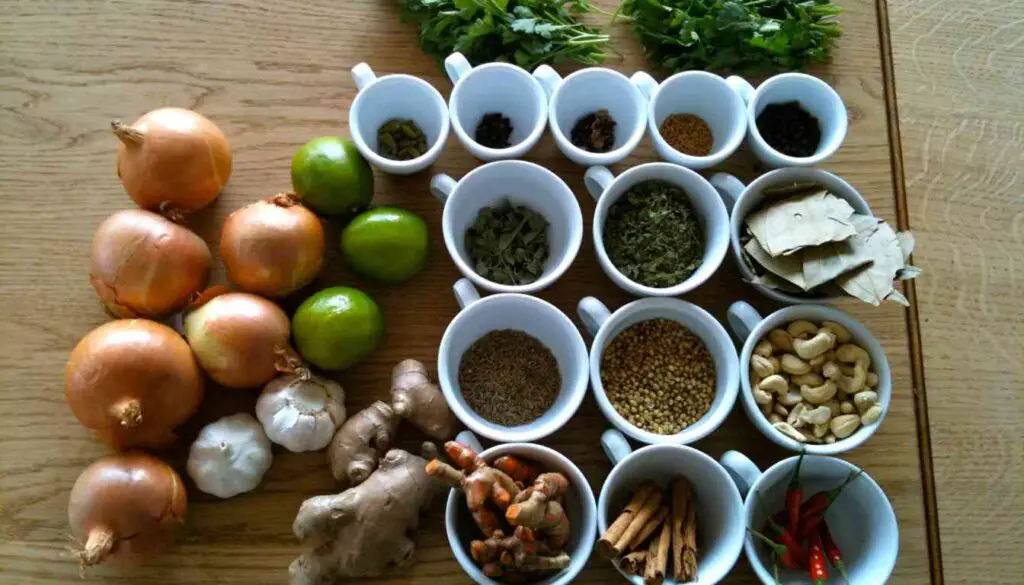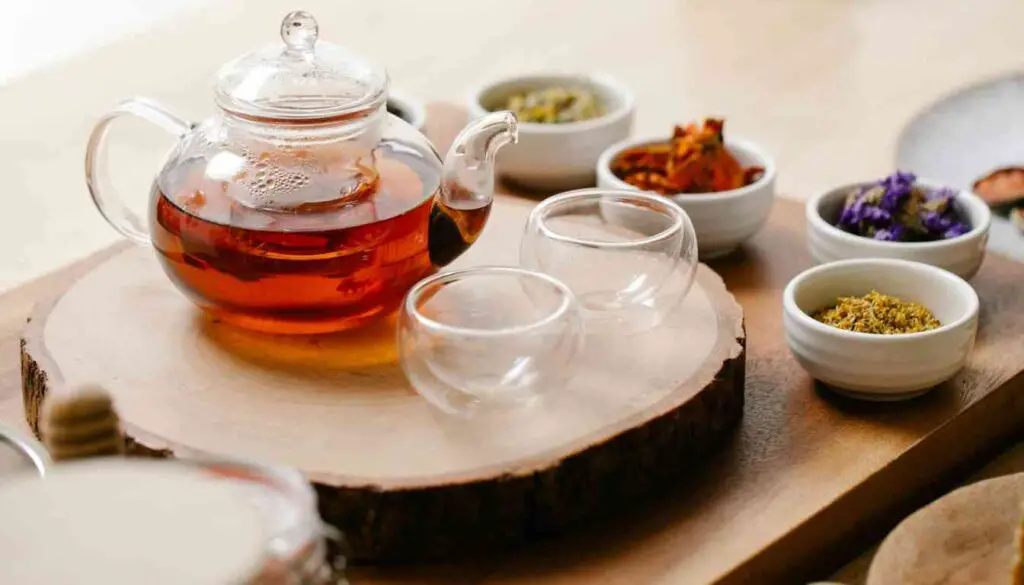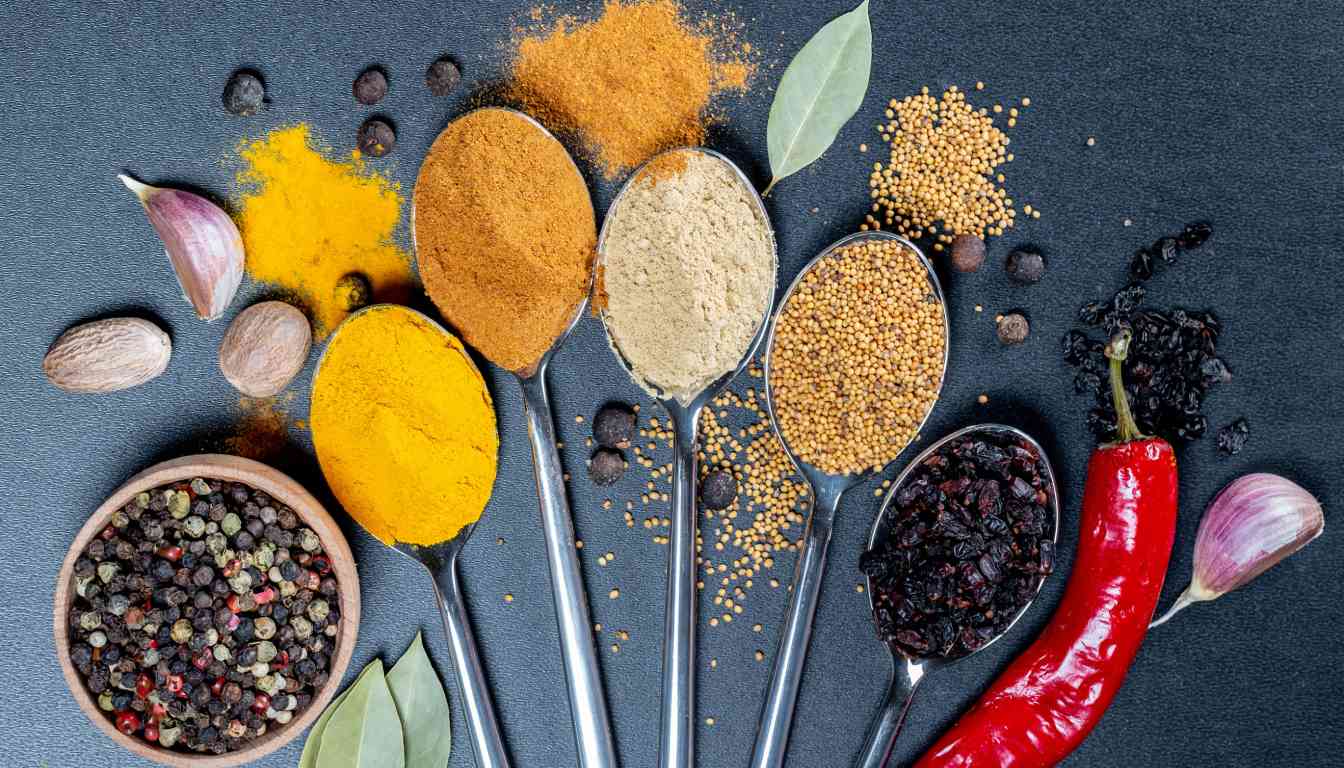Inflammation is a normal reaction of the body’s immune system to harm or infection. However, persistent inflammation can result in various health issues, including heart disease, diabetes, and cancer. While there are drugs available to manage inflammation, many individuals opt for natural solutions, like spices, to help lessen inflammation. So what spices are good for inflammation?
As someone who has suffered from chronic inflammation in the past, I have found that incorporating certain spices into my diet has been helpful in reducing inflammation and improving my overall health. While more research is needed to fully understand the anti-inflammatory properties of spices, there are several spices that have been shown to be particularly effective in reducing inflammation.
In this article, I will explore some of the best spices for inflammation and how they work to reduce inflammation in the body. By incorporating these spices into your diet, you may be able to reduce inflammation and improve your overall health.
Understanding Inflammation – What Spices Are Good For Inflammation?

What is Inflammation – What Spices Are Good For Inflammation
Inflammation is a natural response of the immune system to protect the body from infections, injuries, and toxins. It is characterized by swelling, redness, heat, and pain in the affected area. The immune system releases white blood cells, cytokines, and other molecules that help to fight off harmful agents and repair damaged tissues.
Molecular Pathways Linked to Inflammation – What Spices Are Good For Inflammation
Inflammation is a complex process that involves several molecular pathways. One of the key pathways is the activation of nuclear factor kappa B (NF-kB), a transcription factor that regulates the expression of genes involved in inflammation, cell survival, and proliferation. NF-kB is activated by various stimuli such as cytokines, oxidative stress, and pathogens.
Another important pathway is the inflammasome, a multiprotein complex that triggers the release of pro-inflammatory cytokines such as interleukin-1 beta (IL-1β) and IL-18. The inflammasome is activated by various danger signals such as uric acid crystals, ATP, and pathogens.
Chronic Diseases Linked to Inflammation – What Spices Are Good For Inflammation
While acute inflammation is a protective response, chronic inflammation can be harmful and contribute to the development of various chronic diseases such as cancer, diabetes, cardiovascular disease, and Alzheimer’s disease. Chronic inflammation is characterized by sustained activation of immune cells and the release of pro-inflammatory cytokines and chemokines.
Chronic inflammation can be caused by various factors such as infections, autoimmune disorders, environmental toxins, and lifestyle factors such as diet and stress. Therefore, it is important to maintain a healthy lifestyle and consume foods that have anti-inflammatory properties.
In the next section, we will explore the role of spices in reducing inflammation and preventing chronic diseases.
Top 12 Anti-Inflammatory Herbs and Spices – What Spices Are Good For Inflammation?
I often recommend incorporating herbs and spices into your diet to help reduce inflammation in the body. Inflammation is a natural response to injury or infection, but chronic inflammation can lead to various health issues, including heart disease, diabetes, and arthritis. Here are my top 12 anti-inflammatory herbs and spices:
Ginger – What Spices Are Good For Inflammation
Ginger is a well-known spice with potent anti-inflammatory properties. It contains compounds called gingerols and shogaols that have been shown to reduce inflammation in the body. Ginger is also great for digestion and can help alleviate nausea and vomiting. You can add fresh ginger to your smoothies, stir-fries, and teas for a spicy kick.
Garlic – What Spices Are Good For Inflammation
Garlic is another potent anti-inflammatory spice that has been used for medicinal purposes for thousands of years. It contains a compound called allicin, which has been shown to reduce inflammation and boost the immune system. Garlic is also great for heart health and can help lower cholesterol levels. You can add fresh garlic to your soups, stews, and roasted vegetables for a delicious flavor.
Turmeric – What Spices Are Good For Inflammation
Turmeric is a bright yellow spice that has been used in traditional medicine for centuries. It contains a compound called curcumin, which has potent anti-inflammatory and antioxidant properties. Turmeric is also great for brain health and can help improve memory and cognitive function. You can add turmeric to your curries, smoothies, and teas for a warm, earthy flavor.
Black Pepper
Black pepper is a common spice that is often used in cooking. It contains a compound called piperine, which has been shown to reduce inflammation and improve digestion. Black pepper is also great for brain health and can help improve memory and cognitive function. You can add black pepper to your soups, stews, and roasted vegetables for a spicy kick.
Ginseng
Ginseng is a popular herb that has been used in traditional medicine for thousands of years. It contains compounds called ginsenosides, which have been shown to reduce inflammation and boost the immune system. Ginseng is also great for energy and can help improve physical and mental performance. You can add ginseng to your teas, smoothies, and soups for a subtle flavor.
Green Tea
Green tea is a popular beverage that is rich in antioxidants and anti-inflammatory compounds. It contains a compound called EGCG, which has been shown to reduce inflammation and improve brain function. Green tea is also great for weight loss and can help boost metabolism. You can drink green tea hot or cold, or add it to your smoothies for a refreshing flavor.
Rosemary
Rosemary is a fragrant herb that is often used in cooking. It contains compounds called rosmarinic acid and carnosic acid, which have been shown to reduce inflammation and improve brain function. Rosemary is also great for digestion and can help alleviate bloating and gas. You can add fresh rosemary to your roasted vegetables, meats, and soups for a delicious flavor.
Cinnamon
Cinnamon is a sweet spice that is often used in baking. It contains a compound called cinnamaldehyde, which has been shown to reduce inflammation and improve insulin sensitivity. Cinnamon is also great for heart health and can help lower cholesterol levels. You can add cinnamon to your oatmeal, smoothies, and baked goods for a warm, sweet flavor.
Cloves
Cloves are a fragrant spice that is often used in baking. They contain a compound called eugenol, which has been shown to reduce inflammation and improve digestion. Cloves are also great for oral health and can help alleviate toothache and bad breath. You can add cloves to your baked goods, teas, and soups for a warm, spicy flavor.
Red Pepper
Red pepper is a spicy spice that is often used in cooking. It contains a compound called capsaicin, which has been shown to reduce inflammation and improve metabolism. Red pepper is also great for weight loss and can help suppress appetite. You can add red pepper to your soups, stews, and roasted vegetables for a spicy kick.
Eugenol
Eugenol is a compound found in cloves and other spices that has been shown to reduce inflammation and alleviate pain. It is often used in dental care products and can help alleviate toothache and gum pain. You can add cloves or other eugenol-rich spices to your teas, soups, and baked goods for a warm, spicy flavor.
Capsaicin
Capsaicin is a compound found in red pepper that has been shown to reduce inflammation and alleviate pain. It is often used in topical creams and ointments to alleviate muscle and joint pain. You can add red pepper or other capsaicin-rich spices to your soups, stews, and roasted vegetables for a spicy kick.
How These Spices Fight Inflammation

As I researched the topic of spices and inflammation, I discovered that many spices contain active components that can help reduce inflammation and pain in the body. In this section, I will discuss the active components and their effects, as well as the evidence-based research that supports their use.
Active Components and Their Effects
Spices such as turmeric, ginger, and black pepper contain active components that have been shown to have anti-inflammatory effects in the body. Turmeric contains curcumin, which has been found to inhibit the production of inflammatory cytokines and reduce pain. Black pepper contains piperine, which can enhance the absorption of curcumin and increase its anti-inflammatory effects. Ginger contains gingerols and shogaols, which have been found to have anti-inflammatory and pain-relieving effects.
Evidence-Based Research
There is a growing body of evidence to support the use of these spices for reducing inflammation and pain. For example, a 2021 study published in Drug Design, Development and Therapy found that curcumin may help reduce inflammation in the gut by inhibiting the production of inflammatory cytokines. Another study published in the Journal of Medicinal Food found that ginger extract was effective in reducing knee pain in individuals with osteoarthritis.
In addition, a review of studies published in the Journal of Medicinal Chemistry found that piperine may have potential therapeutic applications in the treatment of inflammation-related diseases.
Overall, the active components found in these spices have shown promise in reducing inflammation and pain in the body. While more research is needed to fully understand their mechanisms of action and potential side effects, incorporating these spices into your diet may be a natural and effective way to support your overall health.
Incorporating Anti-Inflammatory Spices in Your Diet

As I mentioned earlier, incorporating anti-inflammatory spices in your diet can have a positive impact on your health. Here are some recipes and tips to help you get started:
Recipes and Tips
- Add spices to your meals: You can add spices like ginger, turmeric, cinnamon, and cumin to your meals to give them a boost of flavor and anti-inflammatory benefits. For example, you can add turmeric to roasted vegetables or sprinkle cinnamon on top of oatmeal.
- Try new recipes: There are plenty of recipes that incorporate anti-inflammatory spices. For example, you can try making a ginger and turmeric smoothie or a turmeric and coconut milk latte. You can also experiment with different spice blends to find your favorite flavor combinations.
- Use herbs: In addition to spices, herbs like basil, parsley, and oregano also have anti-inflammatory properties. You can add them to salads, soups, and other dishes to give them a fresh burst of flavor.
Other Lifestyle Changes to Reduce Inflammation
In addition to incorporating anti-inflammatory spices in your diet, there are other lifestyle changes you can make to reduce inflammation. Here are some tips:
- Eat more fruits and vegetables: Fruits and vegetables are packed with fiber, vitamins, and antioxidants that can help reduce inflammation. Aim to eat a variety of colorful fruits and vegetables every day.
- Include healthy fats: Healthy fats like those found in nuts, olive oil, and fatty fish (like salmon, mackerel, tuna, and sardines) can help reduce inflammation. Try to include these foods in your diet on a regular basis.
- Reduce your intake of processed foods: Processed foods are often high in sugar, unhealthy fats, and other ingredients that can contribute to inflammation. Try to limit your intake of these foods and focus on whole, nutrient-dense foods instead.
- Stay hydrated: Drinking enough water is important for overall health, including reducing inflammation. Aim to drink at least 8 glasses of water a day.
- Get enough sleep: Lack of sleep can contribute to inflammation, so it’s important to prioritize getting enough sleep each night. Aim for 7-9 hours of sleep per night.
By incorporating anti-inflammatory spices in your diet and making other lifestyle changes, you can help reduce inflammation and improve your overall health.
Before You Go – What Spices Are Good For Inflammation?
Inflammation can be a major contributor to a variety of chronic diseases. Incorporating anti-inflammatory spices into your diet can be an easy and delicious way to help reduce inflammation in the body.
Some of the best spices for fighting inflammation include ginger, turmeric, cinnamon, and black pepper. Ginger contains an active compound called 6-Gingerol that eases inflammation and pain. Turmeric contains curcumin, which has been shown to have potent anti-inflammatory effects. Cinnamon may help manage blood sugar levels and reduce inflammation. Black pepper contains piperine, which has been shown to have anti-inflammatory effects.
Other spices that have been shown to have anti-inflammatory effects include cloves, garlic, and cayenne pepper. Cloves contain eugenol, which has been shown to have anti-inflammatory properties. Garlic contains allicin, which has been shown to have anti-inflammatory effects. Cayenne pepper contains capsaicin, which has been shown to have anti-inflammatory and pain-relieving effects.
Incorporating these spices into your meals can be as simple as adding them to your morning smoothie or sprinkling them on your dinner. Experiment with different spice combinations to find what works best for you. Remember to always consult with your doctor before making any major changes to your diet or lifestyle.
References – What Spices Are Good For Inflammation
Little Herb Encyclopedia, by Jack Ritchason; N.D., Woodland Publishing Incorporated, 1995
The Ultimate Healing System, Course Manual, Copyright 1985, Don Lepore
Planetary Herbology, Michael Tierra, C.A., N.D., Lotus Press, 1988
Handbook of Medicinal Herbs, by James A. Duke, Pub. CRP Second Edition 2007
The Complete Medicinal Herbal, by Penelope Ody, Published by Dorling Kindersley
Check the Following Articles!
Herbal Remedies for Hypertension
Herbalist Career: How to Become a Successful Herbal Pro
Antibiotics and Garlic: A Comprehensive Overview
What Spices Are Good For Inflammation
Inflammation can be a real pain, but guess what? Spices are here to help! They’re like little superheroes, ready to swoop in and save the day.
Take a detour to theherbprof.com. It’s like an online encyclopedia of herbal remedies. You’ll find a wealth of information on how spices can help with inflammation.
Turmeric, for instance, is a real champion. It contains curcumin, a compound known for its anti-inflammatory properties. It’s like a superhero, battling the bad guys in your body!
Ginger is another star. Known for its anti-inflammatory and antioxidant effects, it’s like a secret weapon against inflammation!
And let’s not forget Cayenne pepper. This spice contains capsaicin, a compound that is known to have anti-inflammatory properties. It’s like a soothing lullaby for your body.
So, why not give spices a try? They’re natural, they’re effective, and they’re ready to help. Plus, they’re a great way to support theherbprof.com.
Frequently Asked Questions – What Spices Are Good For Inflammation?

What are some natural anti-inflammatory herbs?
There are many natural herbs that have anti-inflammatory properties. Some of the most well-known ones include turmeric, ginger, cinnamon, and garlic. These herbs can be used in cooking or taken as supplements to help reduce inflammation in the body.
What are some cooling herbs for inflammation?
If you’re looking for herbs that have a cooling effect on inflammation, you might want to try peppermint, chamomile, or aloe vera. These herbs can be used topically or ingested to help soothe inflamed areas of the body.
What are some anti-inflammatory herbs for tea?
Herbal teas are a great way to incorporate anti-inflammatory herbs into your diet. Some of the best herbs for tea include ginger, turmeric, chamomile, and green tea. These teas can be enjoyed hot or cold and are a great way to stay hydrated while reducing inflammation.
What are some anti-inflammatory plants?
Plants are a great source of anti-inflammatory compounds. Some of the best anti-inflammatory plants include aloe vera, chamomile, lavender, and rosemary. These plants can be used topically or ingested to help reduce inflammation in the body.
What are the top 3 anti-inflammatory foods?
There are many foods that have anti-inflammatory properties, but some of the best include fatty fish, leafy greens, and berries. These foods are rich in omega-3 fatty acids, antioxidants, and other compounds that can help reduce inflammation in the body.
How can inflammation in the body be reduced quickly?
While there are many natural remedies for reducing inflammation, some of the quickest ways to reduce inflammation include getting enough sleep, staying hydrated, and avoiding inflammatory foods like processed foods and sugar. Additionally, taking anti-inflammatory supplements like omega-3 fatty acids, curcumin, and quercetin can help reduce inflammation quickly.

